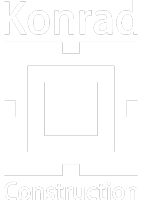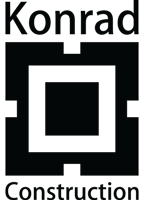There are four phases to any construction project that need to be understood in order to complete the job successfully, on schedule, and on budget. The four phases are Planning, Pre-Construction, Construction, and Post-Construction. Each phase is explained in more detail below.
1. Planning
The first phase of any construction project is planning. In this phase, the goals for the project are defined and articulated. The feasibility of the plan is also evaluated. In other words, the owner, architect, and construction manager engage in preliminary discussions concerning what is to be built.
Additionally, a determination is made as to whether or not the project is likely to be approved by the authorities in the particular jurisdiction. Furthermore, the parameters of the project are discussed. These parameters include the scope of the project and any relevant quality assumptions concerning the concept and deliverables of the undertaking.
2. Pre-Construction
In the pre-construction phase, the architect drafts the construction documents, translating the early planning exercise (EPE) into specific contract documents for building permits. This is then passed on to the contractor so that they know what is being constructed.
Construction documents are typically subdivided into three distinct phases: schematic design (SD), design development (DD), and construction documents (CD). In most cases, when the SD phase is complete, the drawings are approximately 20% complete, and design development is around 70% complete, and the constructing documents are 100% finished.
3. Construction
The construction phase is the execution phase of the project. The plans, schematics, blueprints, and other documents are acted upon, and the building of the project is commenced. The function of the professional team in this phase is known as Construction Administration (CA). The architect, consultants, and any commissioned engineers are engaged with CA services.
CA services in this respect refers specifically to:
• Conducting quality control inspections
• Responding to RFI’s (Requests for Information)
• Reviewing and approving any technical submissions
• Making sure the project is delivered in accordance with the design parameters
In Layman’s terms, the construction phase is when the project actually gets built. The site is inspected to ensure that jurisdictional code has been adhered to, and the project is in line with the original plans drafted by the architect and agreed to by all parties in the preliminary phases.
4. Post-Construction
The final phase is known as post-construction, sometimes called “close-out.” In this phase, the client or clients are provided with all the project’s technical information, such as a final construction close-out document, a document list, and other documents including manuals, as-builts, any warranties, and the final invoice.
It is at this point that insurance is changed over from the ‘course of construction’ to long-term property insurance. Some projects, particularly those that are large in scope and scale, may subsequently undergo an additional process called ‘commissioning,’ which involves running a number of ‘systems tests.’ These tests check performance to ensure that all of the specified requirements have been delivered as agreed upon.
Following the completion of commissioning and any systems tests conducted hitherto, the owner is generally trained on the operation of the facility to ensure safe conduct moving forward.
Contact us today to learn about what construction services Konrad Construction can offer you.




